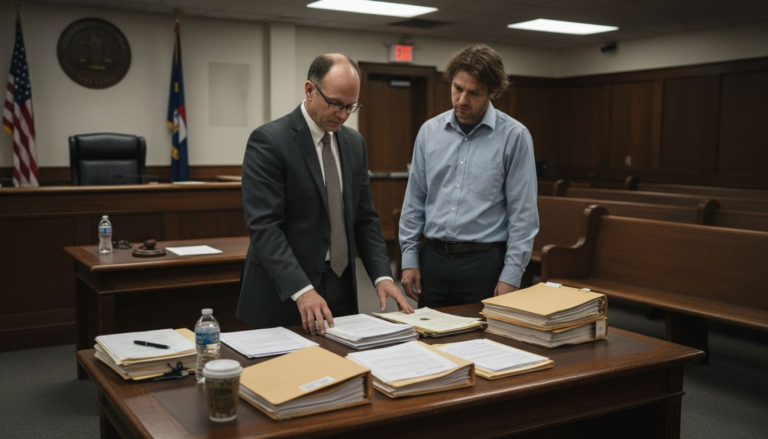If you or a loved one is facing felony charges in North Carolina, understanding how the state classifies felonies is essential to preparing your defense. North Carolina categorizes felonies from Class A (most serious) to Class I (least serious), and the class of your charge can significantly impact your potential sentence, your future, and your freedom.
At King & Rowe, Attorneys at Law, our Hickory felony lawyers guide clients through the criminal justice system every day. Below is a breakdown of each felony class and what you can expect under North Carolina law.
Understanding the Felony Classes
North Carolina law divides felonies into 10 classes: A, B1, B2, C, D, E, F, G, H, and I.
Class
Example Offense
Maximum Penalty
A
First-degree murder
Death or life without parole
B1
First-degree rape
144 months to life in prison
B2
Second-degree murder
Up to 484 months (40+ years)
C
Armed robbery
Up to 231 months
D
Voluntary manslaughter
Up to 204 months
E
Assault with deadly weapon with intent
Up to 88 months
F
Felony child abuse
Up to 62 months
G
Possession of firearm by felon
Up to 47 months
H
Habitual impaired driving (DWI)
Up to 39 months
I
Forgery, first-time felony drug offense
Up to 24 months
Sentencing Depends on More Than Just the Class
While the felony class sets the range of potential punishment, sentencing also depends on your prior criminal record. North Carolina uses a Structured Sentencing Grid that considers both the felony class and your Prior Record Level(Levels I through VI). Judges can issue:
- Active punishment (jail/prison time)
- Intermediate punishment (probation + jail or treatment)
- Community punishment (probation, fines, or community service)
This is why having experienced local attorneys in your corner matters. At King & Rowe, we explore every option to minimize the impact of a felony charge, including pursuing dismissals, plea reductions, or alternative sentencing.
Why This Classification Matters to You
- Employment and Housing: Class H and I felonies may qualify for expungement after a waiting period, while higher classes generally do not.
- Gun Rights: Any felony conviction typically results in permanent loss of firearm rights.
- Reputation and Future: Felony convictions appear on background checks and can limit access to education and federal benefits.
Facing a Felony in Hickory? Call King & Rowe, Attorneys at Law.
Felony charges are serious, but you don’t have to face them alone. At King & Rowe, Attorneys at Law, we are experienced, local attorneys committed to protecting your rights and future. Whether you’re charged with a Class I forgery or a Class C violent offense, we are here to help you navigate your legal options.
📍 King & Rowe, Attorneys at Law 11 East A Street, Newton, North Carolina 28658
📞 828.466.3858



